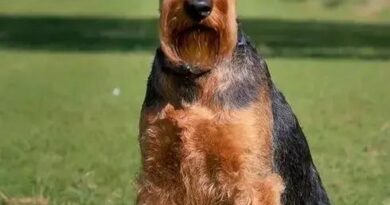What is: Anogenital gland in dogs
What is the Anogenital Gland in Dogs?
The anogenital gland in dogs, also known as the anal glands, is a pair of small glands located near the anus. These glands are responsible for producing a unique secretion that serves various purposes, including marking territory and providing information about the dog’s identity to other animals. Understanding the function and care of these glands is essential for dog owners, as issues can arise if they become impacted or infected.
Location and Structure of the Anogenital Gland
The anogenital glands are situated at approximately four and eight o’clock positions around the dog’s anus. Each gland is connected to the anal canal via a small duct, allowing the secretion to be expelled during defecation or when the dog is excited or frightened. The size of these glands can vary significantly between individual dogs, and their secretions can also differ in consistency and odor, influenced by factors such as diet and health.
Functions of the Anogenital Gland Secretion
The secretion produced by the anogenital glands serves multiple functions. Primarily, it acts as a scent marker, allowing dogs to communicate with one another through pheromones. This scent conveys information about the dog’s age, sex, reproductive status, and even health. Additionally, the secretion can help lubricate the anal area during bowel movements, facilitating easier passage of feces.
Common Issues with Anogenital Glands
Dog owners should be aware of common issues that can affect the anogenital glands, such as impaction, infection, or abscess formation. When the glands become impacted, they may not empty properly, leading to discomfort and potential infection. Signs of problems may include excessive licking of the anal area, scooting on the ground, or a foul odor emanating from the region. Regular monitoring and veterinary check-ups can help prevent these issues.
Signs of Anogenital Gland Problems
Recognizing the signs of anogenital gland problems is crucial for prompt treatment. Symptoms may include swelling around the anus, difficulty defecating, or the presence of blood in the stool. Dogs may also exhibit behavioral changes, such as increased irritability or reluctance to sit. If any of these signs are observed, it is essential to consult a veterinarian for a thorough examination and appropriate treatment.
Treatment Options for Anogenital Gland Issues
Treatment for anogenital gland issues may vary depending on the severity of the condition. In cases of mild impaction, a veterinarian may manually express the glands to relieve pressure and discomfort. For infections or abscesses, antibiotics or surgical intervention may be necessary. Additionally, dietary changes or supplements may be recommended to promote healthy gland function and prevent future problems.
Preventive Care for Anogenital Glands
Preventive care is vital for maintaining the health of a dog’s anogenital glands. Regular grooming and bathing can help keep the area clean and reduce the risk of infection. Additionally, ensuring a balanced diet rich in fiber can promote regular bowel movements, which aids in the natural expression of the glands. Some dog owners may also choose to have their veterinarian express the glands during routine check-ups as a preventive measure.
When to Seek Veterinary Help
Dog owners should seek veterinary help if they notice any signs of discomfort or abnormal behavior related to the anogenital glands. Early intervention can prevent more severe complications and ensure the dog’s overall health and well-being. Regular veterinary visits can also help monitor the condition of the glands and address any concerns before they escalate.
Conclusion on Anogenital Gland Health
Understanding the anogenital glands in dogs is essential for responsible pet ownership. By being aware of their function, potential issues, and preventive care, dog owners can help ensure their furry companions remain healthy and comfortable. Regular veterinary check-ups and attention to any signs of discomfort can go a long way in maintaining the health of these important glands.



